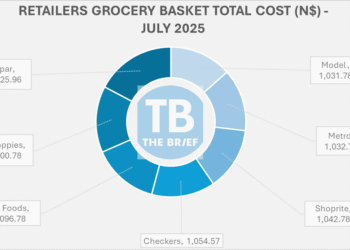
Namibia is set to join Zimbabwe in demanding that all locally mined lithium is processed locally.Â
Mines and Energy Minister Tom Alweendo recently told Reuters that: “We are saying to ourselves, if you have got the minerals that everybody wants now, you need to make sure that at least you probably mine those minerals differently and not in the usual manner.”
Alweendo says the government is going to insist that all lithium mined within the country has to be processed in the country.
Mines and Energy Ministry Spokesperson Andreas Simon had previously told The Brief that, “due to the global demand of critical minerals and the interest shown by other country in our minerals, the government is looking at ways on how to reap optimal benefits. The discussions and way forward are underway. Once finalised, relevant institutions including the media will be informed of the developments/changes.â€
Zimbabwe in December imposed a ban on raw lithium exports, a measure aimed at stopping the smuggling of lithium ore and spurring mines to process in the country.
African countries are determined to retain more of the value of their resources than they have in the past, which means not just mining them but processing them before export, which economically is referred to as beneficiation.
As the auto industry shifts towards electric vehicles—spurred by proposed bans on fossil-fuel cars beginning at the end of the decade—lithium prices and demand have soared.
China, the world’s top lithium refiner and a leading producer dominates the supply chain, but Western governments and international companies are trying to challenge that and see Africa’s lithium reserves as an opportunity.
Namibia in November last year, inked a deal with the EU which will ensure the trade block’s access to the country’s rare earth metals to power the global transition to green energy.
Africa’s lithium production is set to rapidly increase this decade. From 40,000 tonnes this year, the continent will likely produce 497,000 tonnes in 2030, commodities trader Trafigura estimates, with the bulk of that coming from Zimbabwe.
Prices for lithium more than doubled last year as demand from the electric vehicle industry outstripped supply.
The latest effort by African governments is far from the first time they have resolved to retain more of the value of their mineral wealth, which ultimately should boost tax revenue, encourage new businesses and add jobs.
The global transition away from fossil fuels is giving a sense of urgency, although many obstacles remain, notably insufficient electricity supply.
As companies and investors around the world focus on goals to reduce carbon emissions and increase supplies of the minerals that should help, companies and investors are reconsidering projects they may have previously overlooked. -The Brief/Reuters











